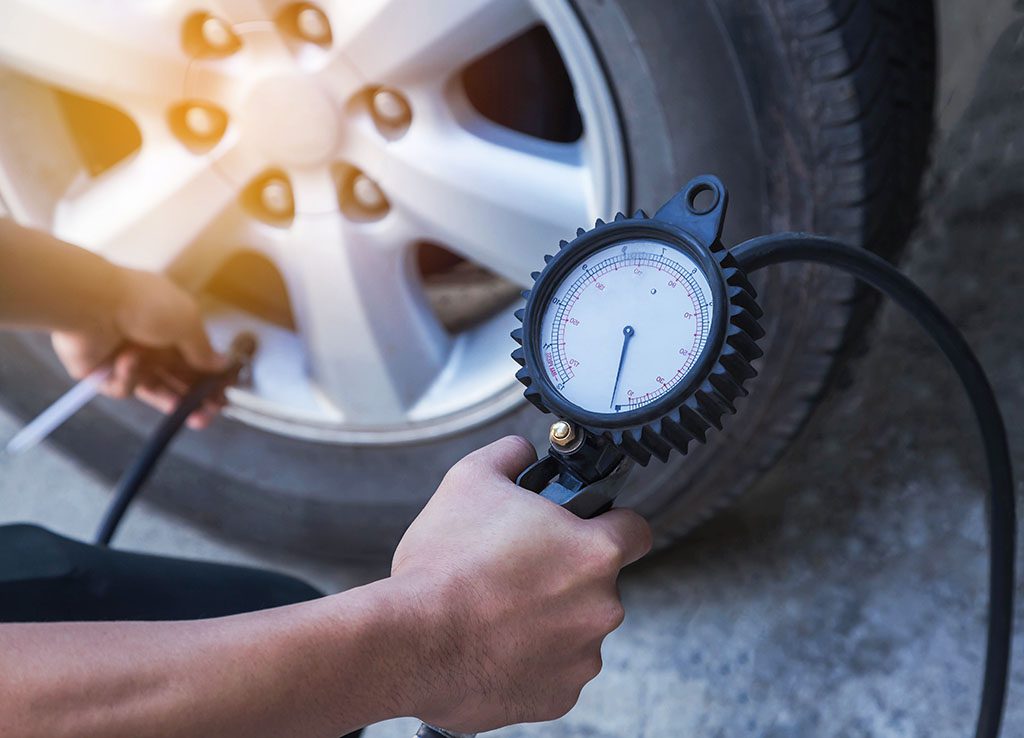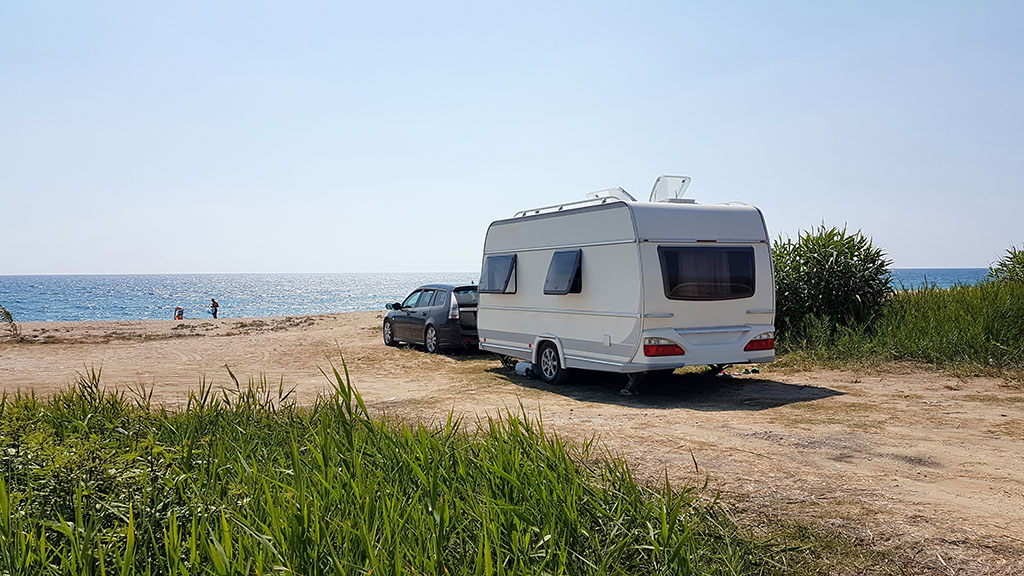TYRE SAFETY FOR CARAVANS

It’s the time of year when we want to be making the most of our caravans, and one of the benefits of owning one is being able to have the freedom to head off on a last-minute getaway. This means that our caravans always need to be in great shape, not just so we can go off whenever we want, but to reduce the risk of accidents too, and keeping an eye on your tyres is a vital part of this.
With this in mind we’ve put together a quick guide to maintaining caravan tyre safety.
CARAVAN TYRE PRESSURE – WHAT YOU NEED TO KNOW
Tyres play an important part in caravan safety as they’re the only part of the caravan that comes in contact with the road. Braking, acceleration, steering and cornering all rely on good tyres, so regular tyre pressure checks are important; under-inflated tyres mean the caravan will be less likely to carry the load, over-inflated tyres result in the tread wearing out more quickly. You can check the pressure using a tyre pressure gauge and it’s a good idea to check the pressure before every trip when the tyres are cold, particularly if your caravan has been stood for a while.
Caravans carry more weight than a standard car, so often need more inflation. The majority of manufacturers put information about the appropriate tyre pressure on a plate or sticker that’s usually attached near the door of the caravan, similar to the one you get on your car door frame. If it’s not there it could be in the Owner’s Handbook. You can also use a tyre pressure checker.
MAINTAINING YOUR CARAVAN TYRES
Compared to a car, a caravan’s annual mileage is fairly low, but caravan tyres still deteriorate even when it’s not in use, particularly when exposed to the elements and UV radiation. When a caravan is stationary for long periods, oxygen in the air in the tyres can slowly leak out, so they should be checked monthly.
Being stored for a long time without being used can also put stress on the tyres, so it’s a good idea to check regularly for signs of deterioration; for example, cracks in the side walls, or bulges or cuts. You also need to keep an eye on the treads, remove any stones that have become stuck and check the tread wear; the legal minimum is 1.6mm across three quarters of the tyre’s circumference.
Always replace tyres that show any sign of perishing and remember to check the other side of the tyre that faces away from you. It’s also worth checking the tyre valves to make sure the stem isn’t damaged.
SIGNS YOU NEED NEW WHEELS
Crack/dents/damage to the sidewall
Damaged/worn tread
Damaged/bent wheel rim
Bulge on sidewall
CARAVAN TYRE SAFETY TIPS
Check your tyres regularly! Measure the tyre pressure and check them visually, all around the tyre, preferably once a month.
If your caravan is stood for long periods of time, it’s a good idea to turn the wheels every so often, maybe once a month when you’re inspecting them, this can help to prevent flats.
Carry a spare wheel/tyre, just make sure it’s the right specification for your caravan.
It’s generally advised that you replace your tyres after 5 years; not all damage is visible and it’s not worth the risk.
If your caravan isn’t going to be used for a while, you could remove the wheels and tyres and store them separately, protected from direct sunlight/heat etc. Just make sure doing this doesn’t adversely affect your insurance policy.

CONCLUSION
Tyres are an important part of your caravan; checking your tyres regularly could make the difference between a safe trip away and a possible accident, so it pays to look after them and spot any problems before they cause any serious damage. The last thing you want is to get all packed up and ready to go only to find you have potential tyre issues!
Another way to ensure you have peace of mind when you head off on a trip is to have a look at Caravan Insurance. You can choose from 3 policy types to get you started, then tweak it with a range of additional Optional Benefits, such as new for old, and gadget and mobile phone cover.
For more caravan safety tips, take a look at some of our other caravan guides, such as our Guide to Caravan Breakaway Cables and CRiS Numbers Explained before you head off on the open road and find your next adventure.
All content provided on this blog is for informational purposes only. We make no representations as to the accuracy or completeness of any information on this site or found by following any link on this site. We will not be liable for any errors or omissions in this information nor for the availability of this information. We will not be liable for any loss, injury, or damage arising from the display or use of this information. This policy is subject to change at any time.
We offer a variety of cover levels, so please check the policy cover suits your needs before purchasing. For your protection, please ensure you read the Insurance Product Information Document (IPID) and policy wording, for information on policy exclusions and limitations.



